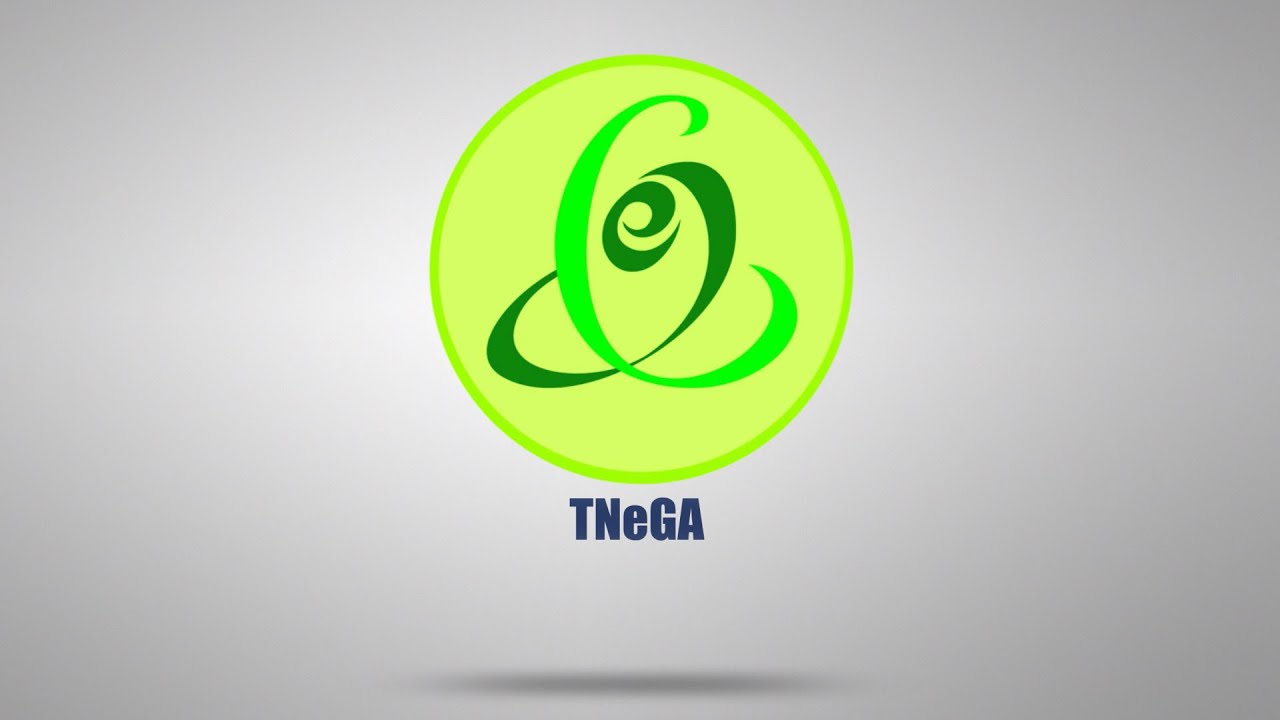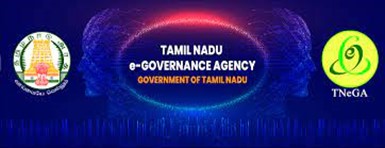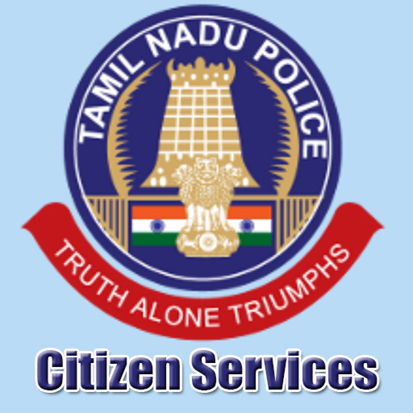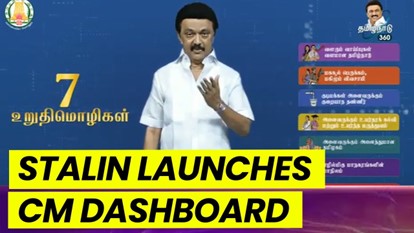PREVIOUS
TAMIL NADU e-GOVERNANCE AGENCY (TNeGA) – Part I
June 14 , 2023
973 days
41924
0
(இதன் தமிழ் வடிவத்திற்கு இங்கே சொடுக்கவும்)

- The Information Technology is a transformatory tool for making Governance simple, transparent and citizen focused.
- To achieve this objective, the Directorate of e-Governance was established during the year 2006.
- An agile and focused approach in operations was also needed in this sector.
- Hence, the Tamil Nadu e-Governance Agency (TNeGA) was created during the year 2007 as a society registered under the Tamil Nadu Societies Registration Act, 1975.
- It aims to improve the quality of life of the Citizens through efficient delivery of Government Services using ICT tools.
- The Director of e-Governance functions as the ex-officio Chief Executive Officer of TNeGA.
TNeGA Core Projects
District e-Governance Societies (DeGS)
- The e-district project is one of the State Mission Mode Projects (SMMPs) being implemented under National e-Governance Plan (NeGP).
- The objective of the project is electronic delivery of identified high volume Citizen-Centric services at District levels.
- Hence the Government have ordered for the formation of District e-Governance Societies to implement the project.
- This Society is headed by the District Collector in all Districts, except Chennai.
- As far as Chennai is concerned, the DeGS is headed by the Commissioner, Greater Chennai Corporation.
- DeGS gets a 5% revenue share from the e-Sevai operations, which has now been enhanced to 10% with effect from 01.03.2023.
Digital Tamil Nadu (DiTN)
- The mission of the Digital Tamil Nadu (DiTN) is to enable all Government Departments in Tamil Nadu to transform their services and functions through digital mode.
- This will make a path for transparent service and Citizen-Centric Governance to citizens.
Delivery of G2C Services
e-Sevai Centres
- G2C Services are provided electronically through Common Service Centres to deliver services near the doorsteps of citizens.
- The e-Sevai centres are run by Tamil Nadu Arasu Cable TV Corporation Ltd. (TACTV), TACTV Franchisee, Primary Agricultural Co-operative Credit Societies (PACCS), Tamil Nadu Corporation for Development of Women (TNCDW), Fisheries and Fishermen Welfare Department, Village Level Entrepreneurs (VLEs), Members of Legislative Assembly Office and Cantonment Board to deliver Government services to the public near their home.
- As on 17.03.2023, Tamil Nadu e-Governance Agency have issued 9720 e-Sevai user IDs and have established 9455 e-Sevai Centers across the State through different Service Centre Agencies.

Citizen Portal
- In 2018, an open citizen portal was launched, allowing citizens to apply through a web-based open citizen portal for accessing e-Sevai services anytime/ anywhere from their own mobile phones or laptops.
- There has been a steady increase in the number of transactions on the citizen portal since then.
- In 2018, only 2% of the e-Sevai transactions have been delivered over the citizen portal, it has increased to more than 31% in 2022.
- The goal is to have 50% of the e-Sevai transactions through the citizen portal.

- e-Sevai for All
- ‘e-Sevai For All’ scheme was launched on 15.03.2023 with the objective of ensuring ease of opening e-Sevai centers.
- Thereby it allows entrepreneurs to open e-Sevai centers in every village, every ward and habitation.
- All eligible citizens can now apply online and start their own e-Sevai centres after fulfilling some basic requirements.
- A ticketing and feedback system has been implemented to collect feedback and complaints from operators / public regarding e-Sevai centres and services through a toll-free number 18004256000 which will help to get feedback and solve grievances through a centralised system.
Digital Office Tamil Nadu (DoTN) – e-Office
- e-Office is the application suite that allows automation of routine tasks and processes within the Government offices.
- Every file-handling employee of the Government is furnished with a unique name-based login ID, through which they can process the files regarding the subjects allocated to them.
- And each Department is configured as a single unit which enables the Head of the Department / Unit to monitor the pendency of all the Subordinate Offices under the Department/ Unit.
- The Electronic File Management System (e-file) helps create ‘paperless’ offices, that allows speedy disposal of files and improves Governance.
- Communication both within and across offices is near real-time leading to improved efficiency in decision making.
- e-Office enhances transparency by which files can be tracked and their status is always known to all.
- The responsibility of quality and speed of decision making is easier to monitor which increases accountability.
- Above all, e-Office assures data security and data integrity. Hence, e-Office is heading our state way towards effective governance and ultimately aiming to deliver better services to citizens.
TN Decision Support System - DeTN
Data Purity
- Government of Tamil Nadu envisions a Data-Driven Decision Support Infrastructure to improve Governance by assisting in the design, development and execution of Government schemes and programs.
- TNeGA has collected one-time dump of the electronic data from Government Departments and thereafter, updates through differential files / Application Program Interface (APIs) from the Departments as mandated from time to time by TNeGA.
- The Data Purity project aims to help the Departments to identify the right beneficiaries and weed out ineligible ones, to remove data of those deceased from the beneficiary lists, to create a beneficiary database which acts as a decision-making support system for the Government and to reduce the current system of silos and bring about Inter-Departmental sharing of data.
- Thousands of crores were saved towards Jewel loan waiver scheme and Self-Help Group Loan waiver scheme by weeding out ineligible beneficiaries.
- Unorganised Labourers and Differently Abled without ration cards have been analysed for errors in inclusion and results are shared for the issue of new ration cards.
- Below Poverty Line (BPL) families without Chief Minister’s Comprehensive Health Insurance Scheme (CMCHIS) cards are analysed and steps have been taken by Health Department to issue new CMCHIS cards.
CM Dashboard

- The Chief Minister's Dashboard is an internal governance tool launched on 23.12.2021.
- It is designed by a team of Business Intelligence (BI) Developers, Business Analysts and Liaison Data Analysts in TNeGA.
- Its purpose is to provide updated information on a daily, monthly, and yearly basis, with some Departments having real-time information and others having data collected periodically from the field level.
- Since its launch, the Dashboards have been used as an essential component to track the performance of various Departments, schemes, policing efforts, and overall governance.
- Originally designed as an information platform, the Dashboards have evolved into a tool that is useful in evidence-based decision-making.
- The Dashboard covers 32 Departments, involving over 100 Directorates, with more than 135 Dashboards completed and regularly updated.
- The team focuses on accessing data in an 'as-is' situation, ensuring the integrity of data to the extent possible.
- Each Dashboard is uniquely designed to meet the specific needs of each Department.
- Key Performance Indicators are finalized with each Directorate and a business requirement document is compiled.
- The Dashboards are developed after sign-off from the Departments and restricted access with security of phone numbers with OTP is provided.
- Periodic and monthly inferences drawn from the Dashboards are being shared with respective Departments in the form of analytical notes.
- During the implementation of the Dashboards, inefficiencies were identified in several Directorates and Departments due to offline processes, cumbersome red tape, and procedures with little value.
- To address this, a team was formed to assess, analyse, evaluate, track each procedure, and propose changes that would simplify and make the process more effective.
- Flow charts are extensively used, and the background history of the process is examined for its current relevance.
- Overall, the Chief Minister's Dashboard represents a significant step towards transparency and data-driven decision-making in Tamil Nadu's governance.
- Periodic review meetings based on the Dashboards are chaired by the hon’ble Chief minister, who provides directions from time to time.
- Secretaries and Heads of Department are increasingly utilizing the Dashboards to rectify gaps and stagnancy, if any, in the implementation of scheme.
- The upcoming integration of e-portals of Departments through Application Program Interface (API) will further improve the effectiveness and efficiency of the Dashboards, enabling good governance.
-------------------------------------
Leave a Reply
Your Comment is awaiting moderation.


